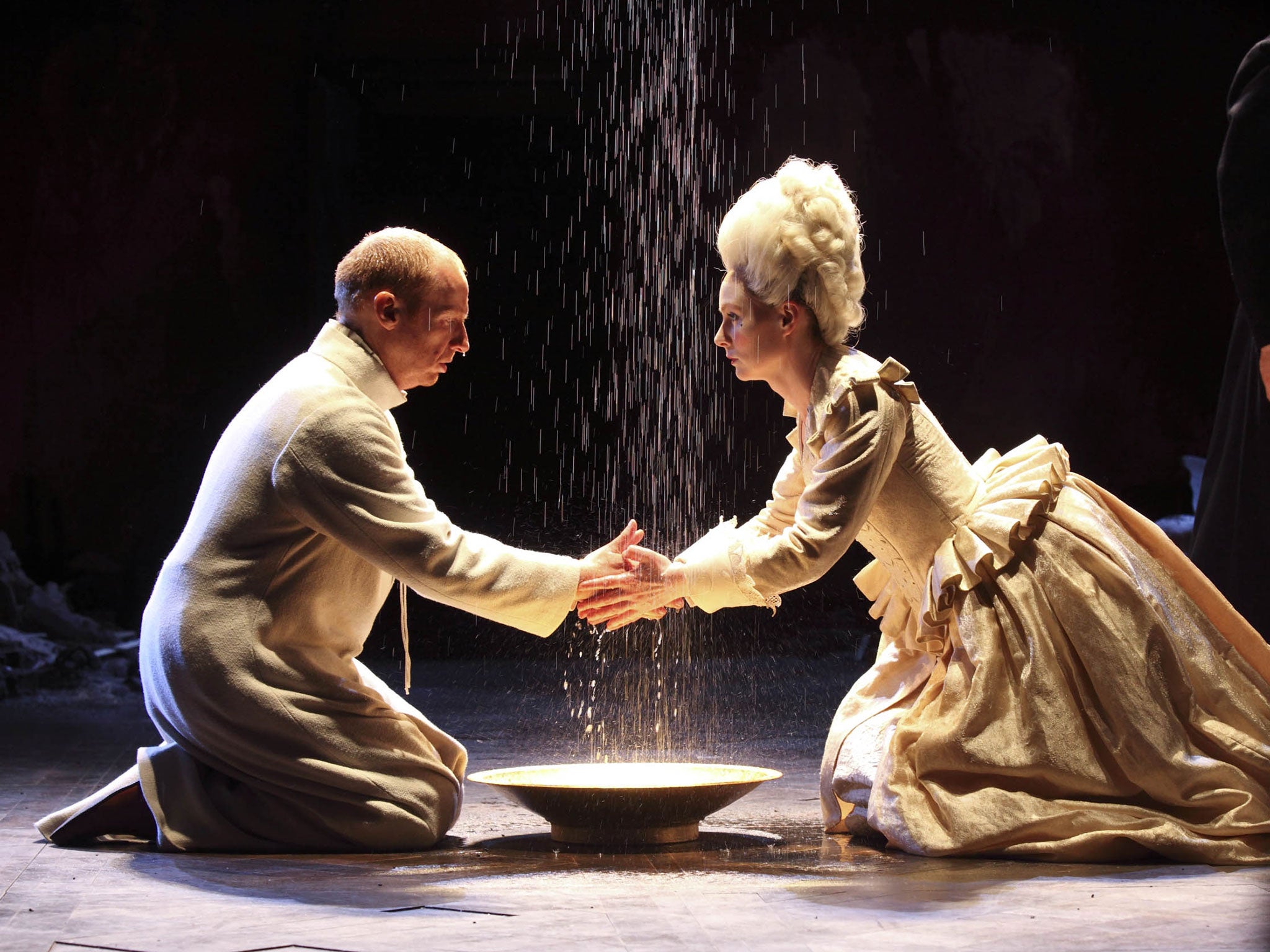Macbeth: William Shakespeare's searing tale of the vulnerability of the ambitious
From his self-inflicted downfall, the Bard created one of the greatest tragedies in our language

Macbeth, I was told at school, is a play about “ambition”. That word alone was enough to draw me in, because back then, it seemed to me that ambitious people were more interesting, and alive, than the adults I knew, none of whom seemed to aspire to be anything but their humdrum selves. Macbeth as a hero, who played for high stakes, and whose bloody death was the price of a life lived to the full.
Writing about politics and such matters has brought me into contact with a lot of ambitious people in the intervening years, and it does not take great psychological insight to see that many of the people who have fought their way to prominence and grasped at what the world calls success are driven by their inadequacies.
Macbeth is one such. He is not a hero: he is a weakling, vain enough to want to be king, without an idea about what to do with that high office once he has it. We see deep into his mind, but never once is there a glimpse of any vision he might have for how his reign might change or benefit Scotland.
Lady Macbeth, I was brought up to believe, was more evil than the witches, a virago with steely ambition. The composer Shostakovich must have seen her in that light, because the heroine of his opera, Lady Macbeth of Mtsensk is a real toughie. Shakespeare’s Lady Macbeth is not. She is the sort of woman who perhaps thinks that being first lady will make up for the love she was not given as a girl. When the going gets tough, she has a nervous collapse.
No composer read Shakespeare more intelligently that did Verdi. The merriest tune in Verdi’s Macbeth is the witches’ chorus, a happy-go-lucky singalong by women who love to cause mayhem. Shakespeare had to be more circumspect, because he was writing in the reign of a new king who took witchcraft very seriously, but even in the original it is obvious that the witches enjoy their hubbling and bubbling. Banquo sensibly ignores them. Macbeth is vain enough and superstitious enough to let their words prey on his mind. When he relays them to his wife, they trigger her insecurity and craving for position; she incites him to commit regicide, and Macbeth is too weak to say no. Had he been stronger, there would have been no story.
Shakespeare knew better than anyone how to make drama from flawed characters struggling to deal with the consequences of their own mistakes. The joy of watching Macbeth is in the craftsmanship that carries the story along at such a pace, in the power of the poetry, obviously, and in Macbeth’s internal dialogue – his initial hesitancy, his burst of brutal activity, and the dawning of awareness that he has made a terrible mistake. Being king is not whatever he imagined it would be: it is a crashing disappointment carrying a scarcely bearable burden of guilt and vulnerability.
A redeeming feature of Macbeth’s character is his physical courage. He is terrified of imagined threats, like Banquo’s ghost, but faces death with exemplary bravery. By then, he knows the game is up. In one of the greatest of all Shakespearian soliloquies, he brushes aside the news that Lady Macbeth has died, because the whole situation is so grim that she may as well be dead.
Thus, this man driven by ambition to murder a king, have his friend Banquo murdered, lose his wife, provoke a civil war, and who has an enemy army at his gate, realises that the path he has taken was never worth it. He is “but a walking shadow, a poor player that struts and frets his hour upon the stage, and then is heard no more” and when eventually he realises that the witches tricked him, he chooses to die fighting.
From his self-inflicted downfall, Shakespeare created one of the greatest tragedies in our language.
Join our commenting forum
Join thought-provoking conversations, follow other Independent readers and see their replies
Comments
Bookmark popover
Removed from bookmarks